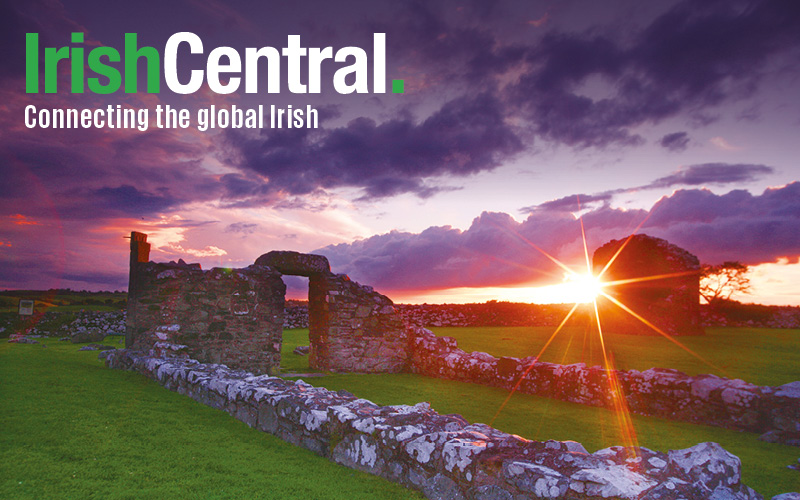When it comes to Irish traditional music and its evolution, it is always more intriguing to think in circular patterns than it is in linear ones when marking certain milestones in its history.
It was a century ago in 1914 that Michael Coleman left Gurteen, Co. Sligo for New York, taking with him that sweet Sligo music that would soon be documented in the nascent recording industry along with the music of “Professor” James Morrison from nearby Riverstown in Sligo in a manner that contributed to its salvation on both sides of the ocean.
While establishing a beach head in New York City for its nostalgic link to the Old Country for the new immigrants, the recordings traveled home for airplay on Radio Eireann and on the few but cherished record players around Ireland, inspiring and giving confidence to aspiring Irish musicians for their native music, helping to save it in a nation striving to identify itself.
Themes like this revolved aplenty over the last few weeks as Fleadh Cheoil na hEireann returned to Sligo Town after 23 years. The connections between New York and Sligo were on display every day of the eight day fleadh.
The important link and repertoire established by Coleman and Morrison in the early part of the 20th century and later by Paddy Killoran, Lad O’Beirne, Martin Wynne and the New York-born Andy McGann gave rise to the Sligo/New York style of playing. That concept was discussed in a new documentary launched at the fleadh called The Sligo Masters, produced by Micheal O Domhnaill (and will be discussed here in a future column) and brought vividly to life with two of its main practitioners in New York today, Brian Conway and his sister Rose Conway Flanagan, who were on scene in Sligo all week as part of the celebrations.
It is also worth noting that when the fleadh was in Sligo from 1989-91, both Martin Wynne and Andy McGann were brought over as honorary presidents to acknowledge the importance of the New York connection to Sligo music.
The Conways taught at Scoil Eigse (the fleadh summer school) and performed in special concerts highlighting their own important links in the chain, and Brian Conway was even given a Bardic Award by the International Body Comhaltas Ceoltoiri Eireann for his significant contributions as both an artist and teacher.
Rose Conway had a number of students who competed in the fleadh as well, and one Bridget O’Donnell took second place in fiddle 12-15 age group.
But the most impressive result was seeing 22-year-old Dylan Foley capture the prestigious Senior All-Ireland fiddle championship, assuring a vibrant continuation of the line. It was even more extraordinary that the last American to do so was Brian Conway himself, 28 years previously in 1986.
Foley, the son of Ann and Tom Foley from upstate Highland, New York, first started Irish fiddle lessons with Rose in her Pearl River home when he was 11. He showed very early promise winning his first All-Ireland medal when he was 12.
After a few more years with Rose, Foley moved onto Brian for further polishing and refinement on his technique. His personal interest was well established though, with encouragement from his parents as well as senior master musicians Monsignor Charlie Coen and Mike McHale who promoted Irish music along the Hudson River Valley.
Part and parcel of Foley’s music training was also his affable personality, allowing him to sit in with young and old and more than hold his own.
Summers at the Catskills Irish Arts Week in East Durham with his family further burnished his skills, and his increasing obsession with playing Irish music also exposed him to a much wider circle of musicians and friends from around North America and Ireland itself which was further advanced by his continuing trips to Ireland for Fleadhanna Cheoils.
By the time he was ready to compete for the Senior Fiddle competition he had quite a rooting section behind him. Two years in a row he came a very close second (the first involved a recall competition it was so tight) to Irish-born fiddlers Niall Murphy (Armagh) and Lydia Warnock (Leitrim).
As it happened they both also garnered Fiddler of Dooney top prizes in Sligo Town the same years as they won the All-Ireland, with Murphy winning the hat trick as the Fiddler of Oreille, so Foley was up against awesome players. But this year he took the prize, and he can bask in the glory of achieving that distinction for the ages.
The title of Senior All-Ireland champion on the fiddle puts a feather in Foley’s cap for sure, but his work as a member of The Yanks with their two game-changing CDs The Yanks and Haymaker (released earlier this year) along with his solo CD HUP already established Foley as a force to be reckoned with in the Irish music scene in America. It seemed only fitting that the Michael Coleman Cup should return with Foley 100 years after Coleman himself arrived in Americay.




Comments